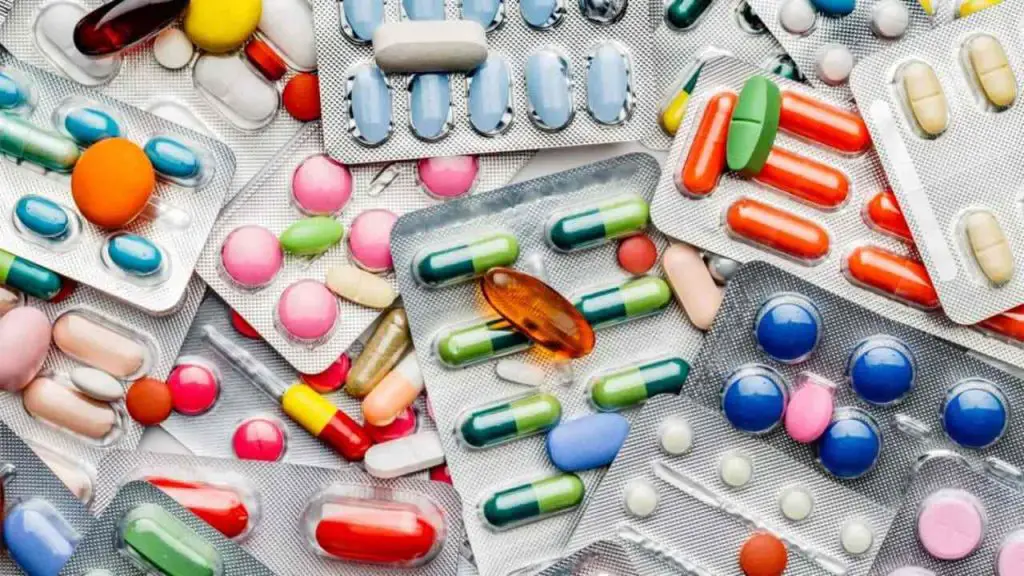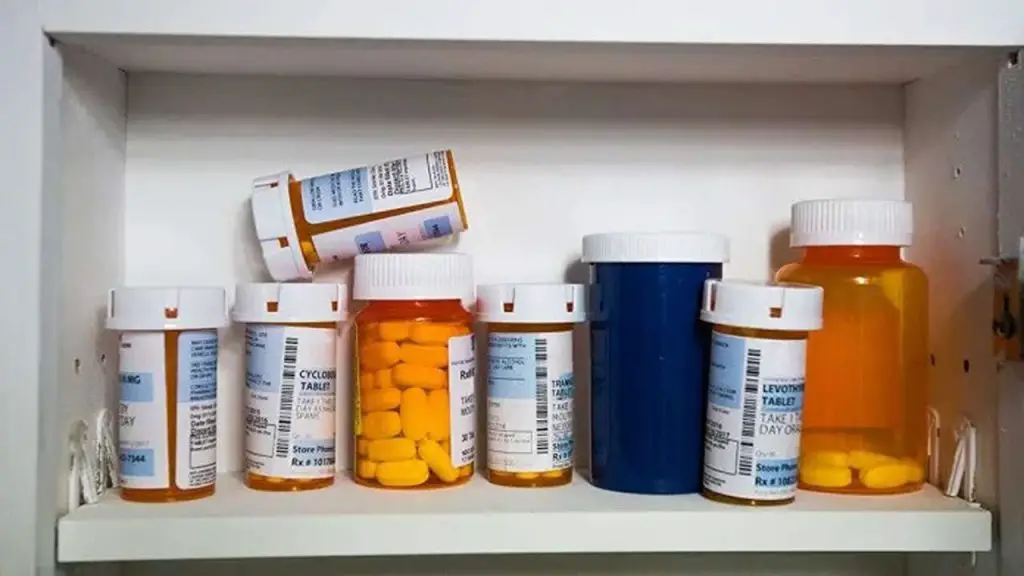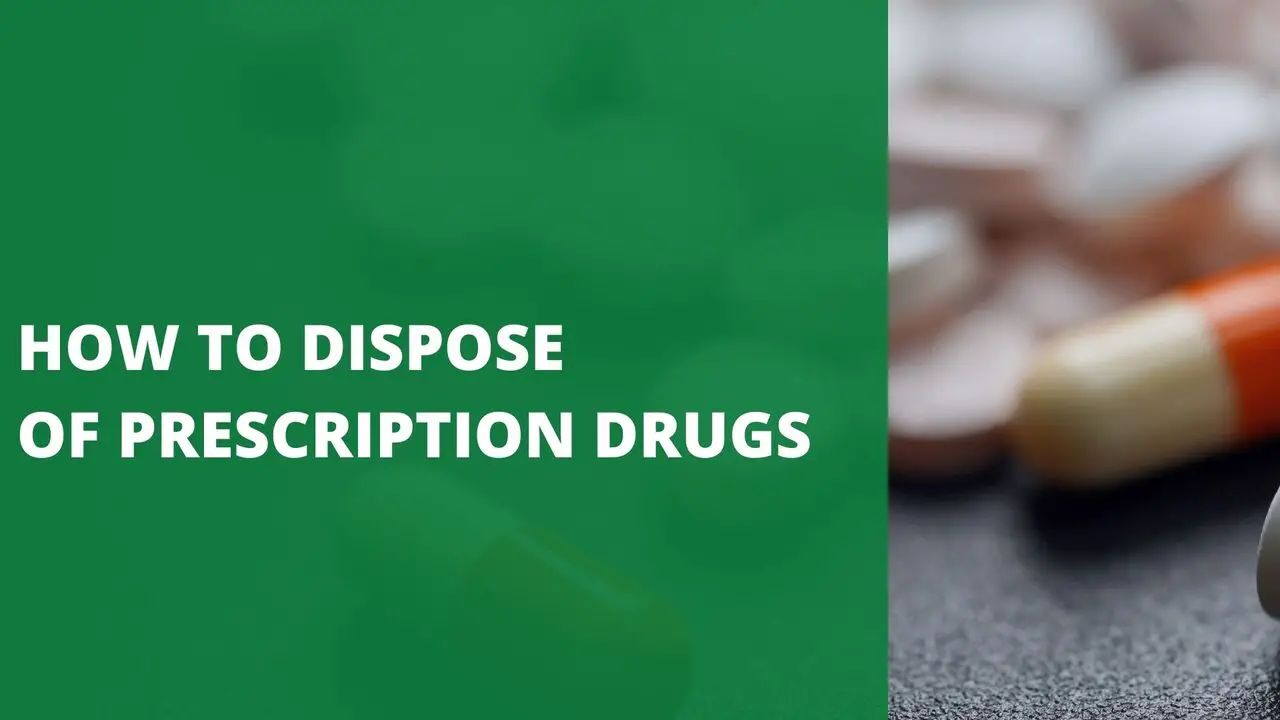As an Amazon Associate I earn from qualifying purchases.
Prescription drugs play a vital role in managing our health. However, proper disposal becomes crucial once a medication reaches its expiration date or is no longer required.
Disposing of unused or expired prescription drugs incorrectly can pose a significant threat to both public health and the environment.
This comprehensive guide equips you with the knowledge and steps to safely and responsibly discard unwanted medications and protect yourself, others, and your surroundings.
How to Dispose of Prescription Drugs?

Proper disposal of prescription drugs is essential to prevent accidental ingestion, misuse, and environmental contamination.
Here’s a detailed guide on how to dispose of prescription drugs safely and responsibly:
1. Take-Back Programs:
Utilize local take-back programs organized by pharmacies, hospitals, or law enforcement agencies.
These programs allow you to drop off unused or expired medications for safe disposal.
2. FDA Recommendations:
If a take-back program is unavailable, follow the FDA’s guidelines for at-home disposal.
Mix medications with an undesirable substance like coffee grounds or cat litter, seal them in a container, and dispose of them in the trash.
Remember to remove personal information from the prescription label.
3. Avoid Flushing:
Refrain from flushing medications down the toilet unless the label or package insert specifically instructs you to do so.
Flushing can lead to water contamination and harm aquatic life.
4. Consult Pharmacist:
Seek advice from your pharmacist if you’re unsure about how to dispose of a particular medication.
Pharmacists can guide safe disposal methods and any available take-back programs.
5. Mail-Back Programs:
Some pharmacies offer mail-back programs, allowing you to mail unused medications to a designated facility for proper disposal.
Check with your pharmacy to see if this option is available.
By following these steps, you can ensure the safe and responsible disposal of prescription drugs, minimizing the risk of harm to yourself and the environment.
How to Dispose of Expired Prescription Drugs?
Expired prescription drugs have lost their potency or may even become harmful if ingested. Disposing of them correctly is crucial.
Luckily, you can follow the same disposal methods mentioned above for expired medications.
Here’s a key point to remember: Never take expired medications. They may be ineffective or cause adverse side effects.
Always check the expiration date on your medications and dispose of them promptly once they expire.
How to Dispose of Prescription Drugs at Home?
While take-back programs are preferred, there may be situations where they are not readily available.
If this is the case, you can dispose of your medications at home by gathering everything you’ll need beforehand: unwanted medications, a sealable container, and an undesirable substance.
Then, remove medications from their original containers to prevent accidental ingestion and protect your privacy.
Mix the medications with the undesirable substance to deter children and pets. Place the mixture in a completely closed, sealable container to prevent leaks or spills.
Finally, discard the sealed container in the trash and avoid recycling it.
How to Safely Store Medicines?

Proper storage of medications goes hand-in-hand with safe disposal.
Here are some tips for keeping your medications organized and secure:
1. Follow Storage Instructions:
Always follow the storage instructions provided on the medication label or packaging.
Some medications require refrigeration, while others should be stored at room temperature.
2. Keep Out of Reach of Children:
Store medications out of reach and sight of children, preferably in a locked cabinet or drawer.
Child-resistant packaging can provide an additional layer of protection.
3. Keep medications in a cool, dry place.
Avoid storing them in the bathroom where humidity and heat can degrade them.
Opt for a cabinet or shelf in a room with consistent temperature.
4. Organize Medications:
Keep medications organized to avoid confusion and accidental ingestion.
Use separate containers or compartments for different medications, and label them clearly.
5. Dispose of Expired Medications:
Regularly check your medication supply for expired drugs and dispose of them properly.
Follow the FDA’s guidelines for at-home disposal or utilize take-back programs if available.
By following these tips, you can ensure the safe storage of medicines, minimizing the risk of accidental ingestion or misuse.
How Can Medicines Impact Our Environment?
Improper disposal of medicines can have significant environmental consequences.
Flushing medications or throwing them in the trash can lead to water contamination, soil pollution, and harm to wildlife.
Pharmaceutical residues from medications can enter water sources, posing risks to aquatic life and affecting soil quality.
Wildlife may ingest these residues, leading to adverse effects on their reproductive and behavioral patterns.
Additionally, improper disposal of antibiotics can contribute to antibiotic resistance, threatening human health and ecosystem stability.
To mitigate these impacts, it’s crucial to follow proper disposal guidelines and consider the environmental consequences of our actions.
Conclusion
In conclusion, disposing of unwanted prescription drugs properly is an essential step in safeguarding both public health and the environment.
By prioritizing drug take-back programs whenever possible and utilizing safe home disposal methods when necessary, you can ensure these medications don’t pose a threat.
Furthermore, proper storage habits minimize the risk of accidental ingestion and medication misuse.
Taking these simple steps empowers you to be a responsible medication user and contribute to a healthier world.
FAQ’s:
Can I flush old medicine down the toilet?
It’s generally not recommended. Flushing medication can harm aquatic life and contaminate water sources.
Instead, use take-back programs or mix medications with an undesirable substance before disposal.
How do you dispose of expired insulin pens?
Remove the needle cap, recap the pen, and place it in a sharps container.
Follow local regulations for disposal or inquire at pharmacies or healthcare facilities for proper disposal options.
Can I return unused medicines to a pharmacy in India?
Policies vary, so check with the pharmacy or local authorities.
Some pharmacies may accept unused medications, while government initiatives or take-back programs may offer disposal options.
Follow proper disposal guidelines for safety and environmental protection.
Amazon and the Amazon logo are trademarks of Amazon.com, Inc, or its affiliates.


